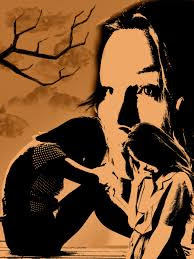Type of Depression: Stress and Anxiety Management UF
 |
| Stress and anxiety |
Stress and Anxiety Management UF
 |
| Anxiety Disorder |
Because We Care for Your Health
 |
| Stress and anxiety |
 |
| Anxiety Disorder |
 |
| Sexual Problems |
Postpartum depression (PPD) what also known as postnatal depression and to mothers sometimes as the “baby blues” is considered by the medical profession as a form of clinical depression following childbirth. This form of depression is fairly common with 5 to 9 per cent of woman who gives birth are affected by it. It is also possible for men to have postpartum depression although this is fairly rare. Even though PPD is fairly common or perhaps because of that few women seek medical treatment or help from other sources for it. Postpartum depression is serious though and should never be ignored or taken lightly.
Many possible causes for postpartum depression have been studied but the two most prevalent are vitamin deficiency and hormonal changes. The vitamin deficiency was once the most popular theory but studies now tend to lean towards the hormonal imbalances as changes in the body take place before, during and after delivery. That being said it must also be noted that when women suffering from postpartum depression screening were given hormonal treatments they had little if any positive effects or improvements. In some cases though, therapy and counselling did seem to be somewhat beneficial.
The symptoms of postpartum depression may occur anytime during the first year after giving birth. The following symptoms are some of the more obvious:
unexplained senses of sadness, hopefulness, guilt or anger, Sleeping and eating disorders, Inability to be comforted, Exhaustion and fatigue, Feelings of inadequacy or emptiness, Anxiety and panic attacks, Low frustration levels, Antisocial behavior, Inability to feel pleasure (Anhedonia), Impaired speech and writing, Anxiety and panic attacks.
As with other depression disorders postpartum depression there are some predictors to indicate PFD such as: Past depression or family history of depression, lack of or low self-esteem, Childcare worries with infant or even siblings, Smoking, Prenatal depression and prenatal anxiety, Infant problems such as colic or teething, Unwanted or unplanned pregnancies or single parent
Lack of social or community support, and Socioeconomic Status.
It has been proven that the socioeconomic status of a parent directly affects the likelihood of PPD, the lower-income level of the mother the higher the risk of postpartum.
Women with postpartum depression have a tendency to be incapable of supplying consistent childcare. They tend to focus more on the negative over the positive side of having a new baby in the home. The results of this is usually a lack of coping strategies and skills.
In postpartum, there are four main recognized coping strategies that include:
| Major Depression |